Block I/O Modules on Super Yacht
On the super yacht Limitless, Turck’s TBEN compact block I/O modules with IP69K protection provide reliable EtherNet/IP communication between sensors/actuators and PLC.
Dutch ship equipment supplier Akerboom Yacht Equipment reworked the entire automation setup on the 20 year old super yacht Limitless with state of the art technology. Two controllers and one EtherNet/IP network replace the previously used point-to-point wiring of equipment such as cranes, boarding ladders or platforms. Akerboom relies on Turck’s robust TBEN-L and S Ethernet block I/O modules to transfer a large number of I/O signals. With their fully encapsulated plastic housing and protection to IP69K, the I/O modules are ideal for use on ships, eliminating the need for control cabinets or other protective measures.
Technical equipment getting on in years
All set-ups on the yacht are hydraulically operated, as a modern control technology had not yet been installed when the Limitless was built. The equipment was controlled with relay devices and simple point-to-point connections.
In recent years, the faults on the moving parts of the yacht’s equipment have increased. Moreover, the functioning moving elements were no longer state of the art and a central controller was not possible. Everything had to be operated by pushbutton at the equipment. Akerboom Yacht Equipment in Leiden, Netherlands, was commissioned by the captain to complete the technical refit of the entire ship. The company has gained a reputation in the field of electrical yacht equipment and is part of the Feadship Group, which also includes the De Vries shipyard.
EtherNet/IP controllers replace island solutions
Previously, each crane and each automated platform on the ship had its own control cabinet, in which the signals of the devices and drives were wired directly. Akerboom replaced these island solutions with I/O modules with EtherNet/IP communication and two modern controllers.
The IP69K I/O block modules also saved us a lot of space as well as wiring. Many control cabinets on board are now unnecessary because the TBEN-L modules are mounted directly next to the hydraulic valves.
A large number of digital input signals are used on the ship. These are supplied by end position switches, which detect the position of the locking bolts in the doors. Analog signals are output by inclination sensors. Turck’s B1N360 inclinometers detect the inclination of platforms when they are lowered onto the water. Measuring the inclination in relation to the ship - and not as an absolute value - is an important requirement here.
The analog signals of the inclinometers are brought to the controller via Turck’s ultra-compact TBEN-S2-4AI I/O station. The TBEN-S modules with a width of only 32 millimeters are even more compact than the TBEN-L, while still meeting IP69K requirements. A TBEN-S is installed in both the back and front area of the yacht.
Block I/Os simplify wiring
This solution was really effective through the use of the TBEN-L1-16DOP digital block I/O modules, which enables all of the output signals to be brought from the controller via an Ethernet line to the digital valves. As multiprotocol devices, the TBEN I/O modules can be used on controllers equally with Profinet, EtherNet/IP, and Modbus TCP protocols.
- Automotive
- Inductive Couplers Ensure Precise Material Feed
- Body Detection in Automobile Production
- Reliable Skid Detection in Automotive Production
- Error-free JIS Order Picking for Bumpers
- RFID Bus Mode Ensures Quality of Lithium-Ion Batteries
- Level Measurement in Dip Coating Line
- Level Control in Central Lubrication System
- Quality Assurance on the Gluing Robot
- Tilt angle sensor accelerates platform alignment
- IP67 Hybrid Module Processes Safety Signals
- Decentralized monitoring of cooling stations
- Robot welding cells networked with Ethernet
- Monitoring the cooling circuit on welding clamps
- Flow monitoring in drum washers
- Press Shop
- Body Shop
- Paint Shop
- Final Assembly
- Powertrain
- Item-level Detection with UHF RFID
- Supply of cooling lubricant in machine tools
- Controlling hydraulic pressure in pressing plants
- Measuring process pressure on scissor lifts
- Success Stories - Automotive
- Modular Plant for Flexible and Efficient Production
- Decentralized Safety Technology for Modular Production
- Modular Conveyor System
- RFID and I/O modules for Safe Tool Changes
- Muffler Production Wired with IO-Link Junction Boxes
- Workpiece Carrier Identification in Rear Vent Production
- Weld Nut Sensing
- RFID Traceability
- RFID in Engine Production
- Bumper Production with Identification
- Solutions for Paint Shops
- Welding and Assembly Sensors
- Angle Sensors for Assembly Systems
- Tool Identification
- Unique Products on the Conveyor Belt
- RFID in the Body Shop
- IO-Link Eases Differential Gear Production
- Chemical
- excom I/O System Enables Safe Hydrogen Liquefaction
- Decentralized Automation in Ex Areas
- RFID Control of Tube Connections in the Ex Area
- Ethernet Signal Connection in the I&C Room
- Ethernet-based Automation of Modular Skids
- Ex Isolation in Modular Process Plants
- Detection of Pigs
- Remote Signal I/O
- Easy Connection of Field Devices
- Signal Processing with System I/O in the Control Cabinet
- Signal Separation with Interface Technology in the Control Cabinet
- Identification of Hose Connections
- Efficient Monitoring of Cabinets in the Field
- Monitoring of Quarter Turn Actuators
- Planning and Assembly of System Solutions
- Success Stories
- Efficient Cooling of Industrial Furnaces with Turck's FS+ Flow Sensors
- I/O System Excom Creates Space in the I&C Rooms
- Zone 2 and 22 RFID
- Efficient Testing Control
- Intrinsically Safe Field Communication
- Process Control System Partnership
- Hazardous Area Remote I/O
- Dual Valve Position Feedback
- Flexibility with Fieldbus
- Asset Management with Remote I/O
- Correct Positioning with RFID in Carbid Production
- Fast conversion in restricted space
- Energy
- Food and Beverage
- Dough Thickness Control in Rolling Machines
- Identification of Food Containers
- Detection of Valve Position
- Detection of Pipe Elbows
- Identification of Chocolate Molds
- Success Stories
- Cloud-based Maintenance for Steam Generators
- RFID Support Enables Track and Trace in Food Production
- Grist for the Mill
- Decentralized Control Modules in Cold Storage
- Track and Trace in Meat Production with RFID
- Contact-free Encoder in Potato Production
- UHF RFID in Food Distribution Center
- RFID for Chocolate Production
- Distributed I/O for Food Equipment
- Remote I/O for Distilleries
- RFID and Autoclaves
- Transparency in Chocolate Manufacturing
- IP67 Power Supplies for Conveyors
- Identification in Food Product Storage
- Logistics
- Preventing Package Jams in the Logistics Center
- Tracking Big Bags with RFID
- Access Control for Protected Areas
- Decentralized Muting of Electro-sensitive Protectice Equipment
- Fast Tag Detection at Warehouse Gates
- Preventive Maintenance on Conveyor Belts
- Detection of Transport Containers
- Level Detection in Vessels
- Identification of Cryovessels
- Identification of Mobile Containers with Handheld Devices
- Identification of Food Containers
- Tier 1 – Bumper Identification
- Collision Protection on Reach Stackers
- Success Stories
- Logistics: RFID Reduces Error Quota by 99 Percent
- Sustainable Tracking of RTIs thanks to RFID
- RFID with HF Bus Mode Eases Seed Storage
- RFID Enables Unmanned Store at Major Building Site
- I/O and Safety Modules Increase Throughput in Intralogistics
- Shipment Tracking for Raw Materials
- RFID-based Shipment Control Minimizes Errors
- RFID-based Tracking of Inbound and Outbound Materials
- Decentralized UHF RFID Solution
- Contact-free Encoder in Potato Production
- Decentralized Control Modules in Coldstore
- IP67 Power Supplies for Conveyors
- Modular Conveyor System
- RFID Solution for Warehouse
- RFID Identifies Pharmaceuticals
- UHF RFID in Food Distribution Center
- Mobile Equipment
- Condition Monitoring Sensor Automates Climate Control
- Automatic Slope Compensation
- Distribution Lines for Field Sprayers
- Angle Measurement on a Field Sprayer
- Determining the Boom Angle Position
- Two-Axis Tilt Measurement on a Combine Harvester
- Collision Protection on Reach Stackers
- Success Stories
- RFID Solution with Smart Forklifts in Automobile Production
- Safe Remote Maintenance of Irrigation and Drainage Pumps
- Access Control with RFID System
- Selective Asparagus Harvester
- Position Measurement with RFID and Encoder
- Block I/O Modules on Super Yacht
- Wear-free encoder on hopper dredger
- I/O for Dust Suppression
- Cabinet Cooling
- Quick Disconnect Connectivity
- Automation Solutions for Extreme Cold
- Remote I/O for Cranes
- Rugged Heavy Metal Lifting
- Rollercoaster Positioning
- Mobile Machinery Solutions
- Exact Height Positioning
- Critical Angle Sensing
- Angle Indicator
- Oil and Gas
- Packaging
- Decentralized RFID Package Verification
- Identification of Printing Color Cartridges
- Reliable Operation of Machines
- Monitoring of Caps in Filling Lines
- Monitoring Changeover Processes
- Identification of Test Bottles
- Level Monitoring of Ground Coffee
- Level Detection in Vessels
- Detection of Transport Containers
- Success Stories
- Pharmaceutical
- End-to-End Sample Tracking with RFID
- RFID Control of Tube Connections in the Ex Area
- Decentralized Package Verification
- Automate Modular Skids
- Ex Isolation in Modular Process Plants
- Control of Valve Interfaces
- Monitoring of Quarter Turn Actuators
- Detection of Pipe Elbows
- Easy Connection of Field Devices
- Identification of Cryovessels
- Identification of Mobile Containers
- Identification of Mobile Containers with Handheld Devices
- Identification of Hose Connections for Precursors
- Identification of Hose Connections in Sterile Areas
- Identification of Big Bags and Bioreactors
- Identification of Single-Use Applications
- Success Stories
Select Country
Turck worldwide


-turck-image.jpg)
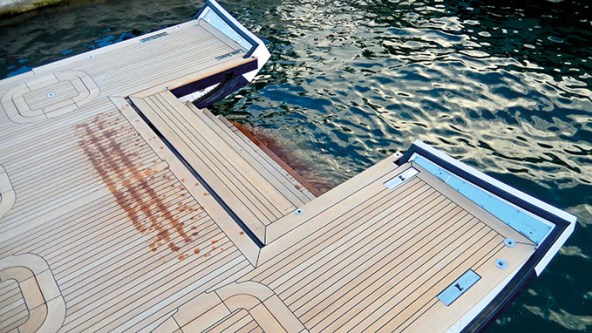
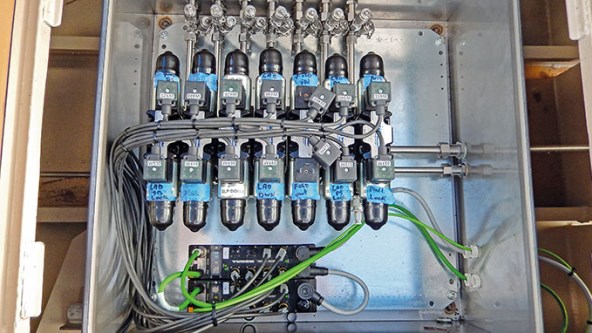
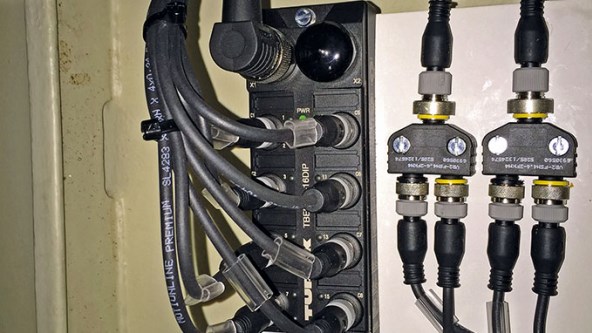
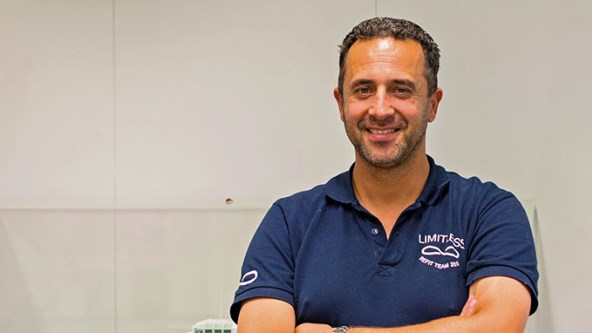
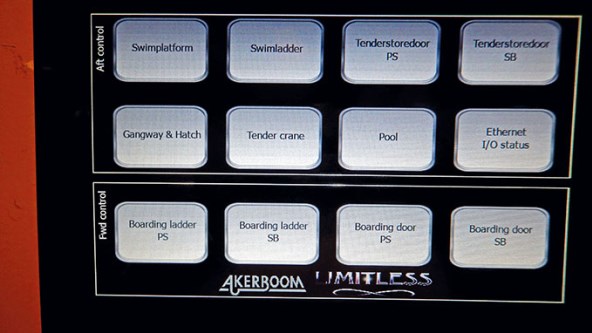
-turck-thumbnail.jpg)




